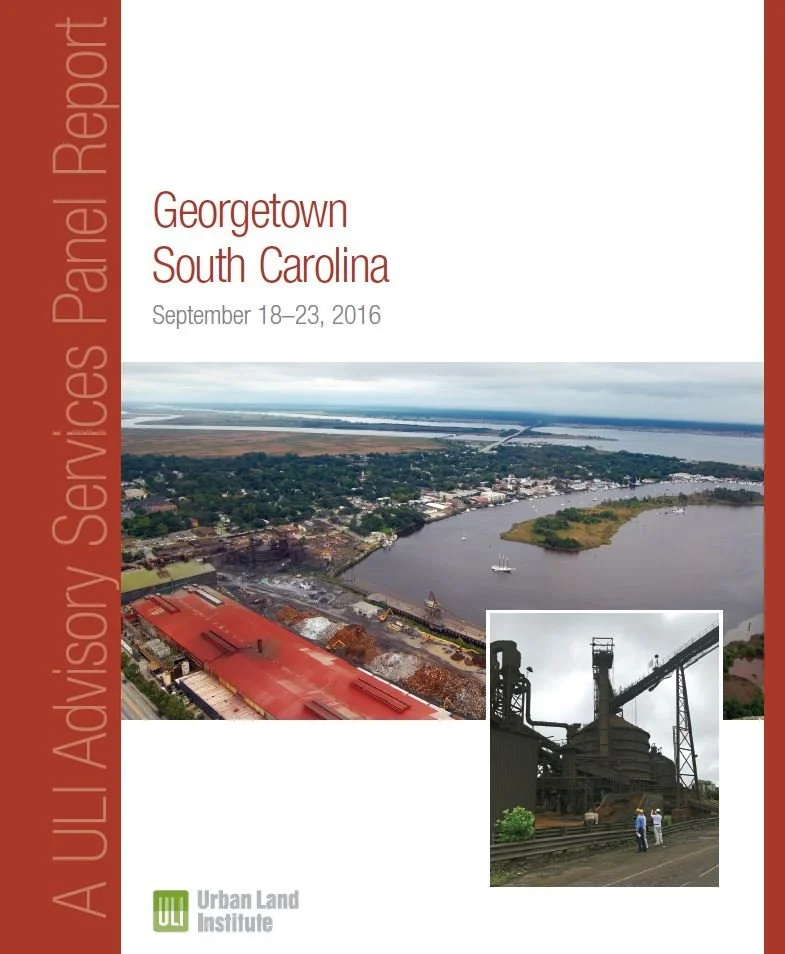Nick Robinson – personal comments provided during public hearing at the Planning Commission meeting on 5/28/2024
Note: this is an expanded version that gives some background, albeit from my perspective, as to how the draft plan was developed; At the PC meeting, due to time constraints, I limited / abbreviated my comments accordingly.
My name is Nick Robinson and I was one of the task force members that were invited, in January 2021, to develop a revision to the comprehensive plan that had last been authored in 2011. At that time, we were fired up and full of excitement with aspirations that we were going to develop a new plan that embodied the vision and the future of the City of Georgetown. It was thought that the revised plan would chart the evolution of the city in the coming decade.
The project was facilitated by the Waccamaw Regional Council of Governments (WRCOG) who ran professional and well-structured meetings that followed a well-scripted pro-forma process. However, the rigidity of the process allowed very little room for input or feedback from the members. Being a task force, I had assumed that it would be a collaborative effort, but sadly it fell very short of that goal. Over time, it seemed to me that the exercise was more about refreshing the metrics and demographic data in order to enable for it to be “rubber stamped” and probably become shelfware.
Personally, I asked that past studies and feasibility reports be considered; most notably the 2003 West End Comprehensive Redevelopment Plan (WRCOG), 2016 Urban Land Institute Report and the 2009 Bridge 2 Bridge Charrette (Clemson Institute for Economic and Community Development). Collectively, and over the years, our community at large has agreed that these deliverables not only capture some great ideas but can be used to formulate strategic goals and implementation plans. Each project was a major effort, took considerable time and investment plus leveraged some great intellectual capital. Sadly, these seem to have been largely ignored … a serious oversight and omission.
The task force lasted a little over nine months with the last formal meeting in October 2021 when it was unilaterally disbanded. The document appears to have laid dormant during a two-year hiatus until an attempt was made in October 2023 to reestablish the task force. Understandably, attendance at that meeting was low as many of the past members had “moved on”, and sadly, one had deceased. The recommendation at the time was to inform the city administration that a new task force should be convened to continue the preliminary work that had been started. Clearly this was not done.
Instead, the Planning Commission has been presented with an incomplete and sub-par document with the strange proposal to somehow augment it with the West End Comprehensive Redevelopment Plan (which was not even considered during the 2021 task-force).
Interestingly, in one of the opening chapters, it states the goals are to define actionable strategies that can be implemented in the city of Georgetown with the appropriate timelines. However, if you look at the recommendations, many simply talk about the detailing the strategies; very self-referential in my view in that the recommendations refer back to the goals of the comprehensive plan.
Having a background in corporate strategic planning and governance, my view is that the draft report has very little substance or specificity in it. It is full of generic and unimaginative statements that could apply to any growing southern city with historical roots.
Finally, I know volume (of pages) isn't a primary metric, but it's very interesting to note that the current report that's under review is only 107 pages while the previous one from 2011, was over 230. So, it's under half the size and does not detail the explicit goals and the strategic direction needed in this critical period for our wonderful City.
Given the rate of change that's occurring in the city, I think that the proposed Comprehensive plan is woefully short to what's needed and needs to be comprehensively revisited.
If the city is to flourish and prosper while inhibiting overdevelopment and without undue commercialization, Georgetown residents deserve better from its city’s officials.

